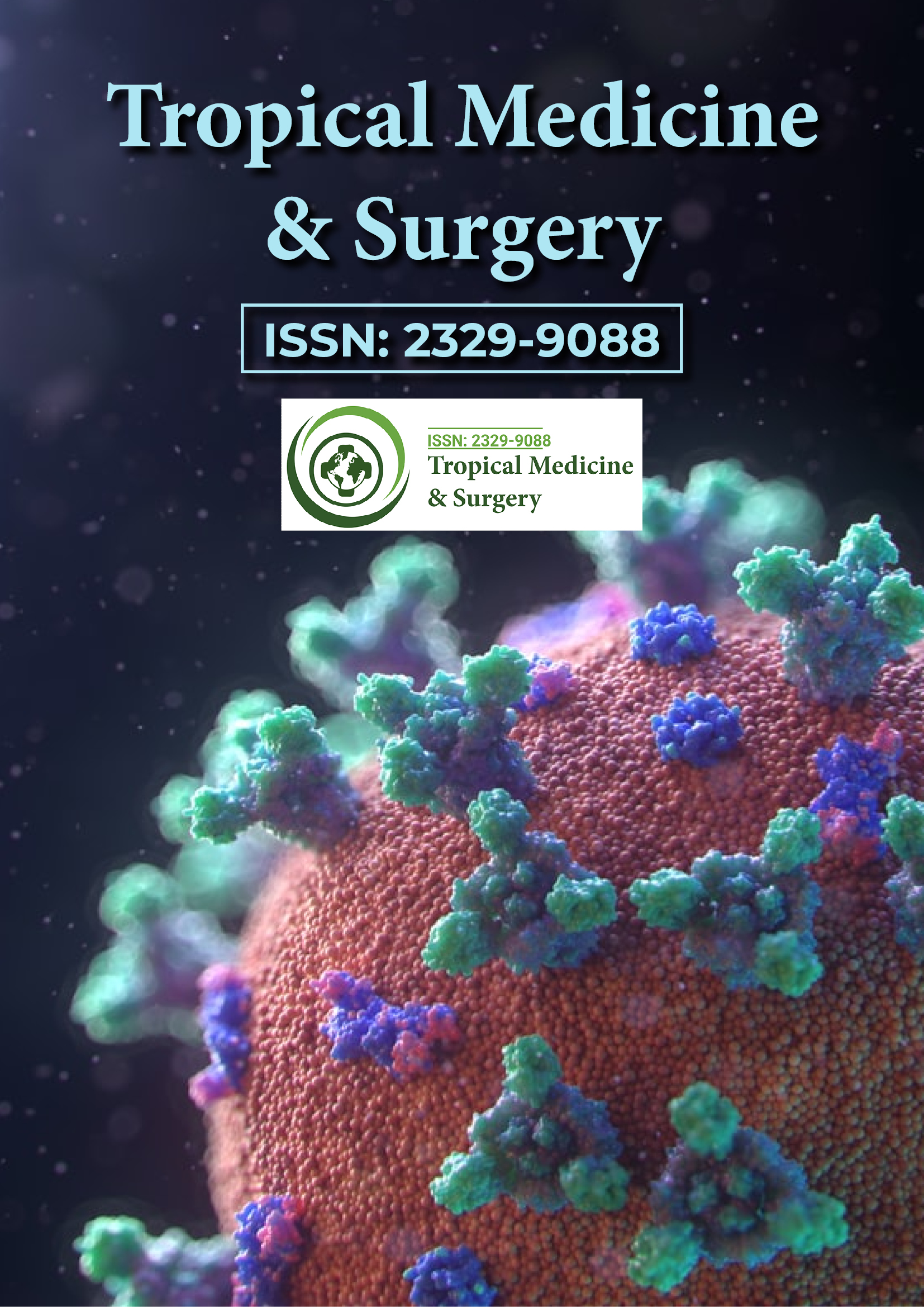Indexed In
- Open J Gate
- Academic Keys
- RefSeek
- Hamdard University
- EBSCO A-Z
- OCLC- WorldCat
- Publons
- Euro Pub
- Google Scholar
Useful Links
Share This Page
Journal Flyer

Open Access Journals
- Agri and Aquaculture
- Biochemistry
- Bioinformatics & Systems Biology
- Business & Management
- Chemistry
- Clinical Sciences
- Engineering
- Food & Nutrition
- General Science
- Genetics & Molecular Biology
- Immunology & Microbiology
- Medical Sciences
- Neuroscience & Psychology
- Nursing & Health Care
- Pharmaceutical Sciences
Opinion Article - (2022) Volume 10, Issue 5
Major Role of Neglected Tropical Diseases and its Several Short-Term Recommendations and Guidelines
Talha Joshi*Received: 01-Aug-2022, Manuscript No. TPMS-22-18331; Editor assigned: 05-Aug-2022, Pre QC No. TPMS-22-18331(PQ); Reviewed: 18-Aug-2022, QC No. TPMS-22-18331; Revised: 25-Aug-2022, Manuscript No. TPMS-22-18331(R); Published: 02-Sep-2022
Description
Neglected Tropical Diseases (NTDs) are a diverse group of tropical infections that affect low-income people in Africa, Asia, and the Americas. Pathogens that cause them include viruses, bacteria, protozoa, and parasitic worms (helminths). These diseases are distinguished from the "big three" infectious diseases (HIV/AIDS, tuberculosis, and malaria), which receive more treatment and research funding.
The World Health Organization (WHO) divided NTDs into two categories: those requiring Preventive Chemotherapy (PCT) and transmission control and those requiring innovative and Intensified Disease Management (IDM). The most visible NTDs assigned to the PCT category are lymphatic filariasis, onchocerciasis, schistosomiasis, and soil-transmitted helminthiasis; the primary tool for their control is the periodic administration of efficacious, safe, and inexpensive (usually donated) drugs to entire at-risk populations on the other hand, focuses on NTDs for which appropriate tools for large-scale use are currently lacking. Buruli ulcer, Chagas disease, human African trypanosomiasis, and leishmaniasis are among these diseases. On May 23, 2017, the World Intellectual Property Organization (WIPO) research launched a new five-year roadmap to guide public-private consortium activities such as research, capacity-building, and outreach efforts in the fight against NTDs, malaria, and tuberculosis, which cause devastation and disproportionately affect the poorest and most vulnerable people. The Carter Center is also working to eradicate or eliminate guinea worm disease in South Sudan, Mali, Chad, and Ethiopia, as well as lymphatic filariasis in Nigeria, Ethiopia, and Hispaniola.
The pharmaceutical company that has initiated large-scale medicine donations in 1987, offering ivermectin through the Mectizan Donation Program for the large-scale treatment of onchocerciasis to prevent river blindness. The first donation through WHO was GSK's albendazole donation in 1997 for the prevention of lymphatic filariasis. Since then, the number and volume of NTD medicine donations have steadily increased, with 2.7 billion tablets enough for over 1.7 billion treatments shipped to endemic countries in 2018. Over time, the donating companies have also integrated their delivery logistics for greater efficiency and coordination. Furthermore, they have aided in the search for better medicines and drug combinations, either by opening up by actively supporting product development or their potential product libraries.
NTDs are frequently found in areas devastated by political conflict, such as rural colonies, shanty towns, or LIC war zones. As a result, these conditions are more common in areas where access to healthcare is severely limited. Furthermore, medical practitioners working in these regions may lack access to resources and advanced technologies commonly found in HIC countries' healthcare facilities. As a result, proposing universal practise guidelines or recommendations for NTDs without taking into account the context in which local healthcare teams work may be misguided and ineffective. Alternatives and modified recommendations are required. Short-term solutions should take into account not only the diseases and their consequences, but also the practical realities of implementation in affected areas. Short-term recommendations must be combined with the medical community's commitment, in collaboration with public and private international organisations, to provide long-term structural solutions that have the potential to significantly improve the quality of life in these regions. In order to reduce the impact of NTDs in endemic areas, tangible improvements in sanitation, housing, financial status, and access to high-quality healthcare services are essential. More cutting-edge public health policies and research are needed to find effective drugs and vaccines as the global fight against NTDs continues. Partnerships involving major donor agencies, charitable organisations, Non-Governmental Organisations (NGOs), government leaders, pharmaceutical companies, and other key stakeholders are critical in combating NTDs and providing treatment to millions of people worldwide. Several partners have already announced new funding to collaborate on NTD prevention and treatment efforts. Despite progress against NTDs, long-term success is dependent on a policy environment, significant political support, and collaboration from all participants.
Citation: Joshi T (2022) Major Role of Neglected Tropical Diseases and its Several Short-term Recommendations and Guidelines .Trop Med Surg. 10: 275.
Copyright: © 2022 Joshi T. This is an open-access article distributed under the terms of the Creative Commons Attribution License, which permits unrestricted use, distribution, and reproduction in any medium, provided the original author and source are credited.
